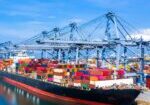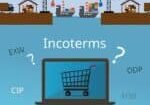Export rules

Commodity: It is a material form that has an economic value in terms of production, consumption or trade, and in addition to the price, it has the characteristic of separation and allocability.Services: is a diverse group of economic activities that are mainly user- and human-centered and include a range of jobs from the main sectors of knowledge and high technology to low-skilled areas that are directly associated with industrial, agricultural and mineral goods. They don’t have and it also clearly consists of temporary added value in the form of human labor, consulting, management skills, communication, training, mediation and the like.Merchant: is a natural or legal person who has the authority of Article 211 of the Civil Code and, based on the current commercial regulations of the country, engages in the export and import of goods for sale and earning income.Foreign exchange agreement: It is an obligation or agreement that the central bank collects from the exporter directly or through the operating banks to return the currency obtained from the export or the equivalent of goods to the country from the exporter.Registering an order for the import of goods: It is a license based on which the customs clearance of imported goods becomes possible.Clearance of goods: It is an operation during which the imported or exported goods and related documents are reviewed by the customs and after complying with the regulations and collecting the legal taxes, the goods are allowed to leave the customs by issuing a customs license.Import duties: are funds that are collected as taxes by the customs from the goods that are definitively imported into the country according to the rules determined by the government.Export of goods: refers to the departure of goods from the geographical territory of the Islamic Republic of IranExport of services: It is the provision of services by natural and legal persons residing in Iran to natural and legal persons abroadImport of goods: means the entry of goods into the customs territory of the Islamic Republic of IranImport of services: is the provision of services by natural and legal persons not residing in Iran to natural and legal persons residing in IranTemporary export: It means the temporary departure of goods from the customs territory of the Islamic Republic of Iran in order to display, repair, complete or change the shape or other cases specified by the law of customs affairs.Temporary import: It is the…
Commodity: It is a material form that has an economic value in terms of production, consumption or trade, and in addition to the price, it has the characteristic of separation and allocability.
Services: is a diverse group of economic activities that are mainly user- and human-centered and include a range of jobs from the main sectors of knowledge and high technology to low-skilled areas that are directly associated with industrial, agricultural and mineral goods. They don’t have and it also clearly consists of temporary added value in the form of human labor, consulting, management skills, communication, training, mediation and the like.
Merchant: is a natural or legal person who has the authority of Article 211 of the Civil Code and, based on the current commercial regulations of the country, engages in the export and import of goods for sale and earning income.
Foreign exchange agreement: It is an obligation or agreement that the central bank collects from the exporter directly or through the operating banks to return the currency obtained from the export or the equivalent of goods to the country from the exporter.
Registering an order for the import of goods: It is a license based on which the customs clearance of imported goods becomes possible.
Clearance of goods: It is an operation during which the imported or exported goods and related documents are reviewed by the customs and after complying with the regulations and collecting the legal taxes, the goods are allowed to leave the customs by issuing a customs license.
Import duties: are funds that are collected as taxes by the customs from the goods that are definitively imported into the country according to the rules determined by the government.
Export of goods: refers to the departure of goods from the geographical territory of the Islamic Republic of Iran
Export of services: It is the provision of services by natural and legal persons residing in Iran to natural and legal persons abroad
Import of goods: means the entry of goods into the customs territory of the Islamic Republic of Iran
Import of services: is the provision of services by natural and legal persons not residing in Iran to natural and legal persons residing in Iran
Temporary export: It means the temporary departure of goods from the customs territory of the Islamic Republic of Iran in order to display, repair, complete or change the shape or other cases specified by the law of customs affairs.
Temporary import: It is the entry of goods into the customs territory of the country for the purpose of repair, processing, completion of display, change of shape, re-export or other cases specified by the law.
Re-exporting: It means leaving the same goods imported into the customs territory from that territory, without repairing and completing or changing the shape, to the original destination and origin or third country.
Border exchange: It means the export and import of goods in border bazaars or authorized customs, by residents of border areas and licensed border cooperatives, cocoons, sailors and employees of vessels with a maximum capacity of 500 tons in a specified volume and type and within a specified ceiling. by the Ministry of Commerce.
Border market: It is an enclosed area located at the border points, which is established independently or in the form of a memorandum of understanding concluded between the Islamic Republic of Iran and neighboring countries in accordance with the rules set by the government to carry out border exchange.
Pilehvar: It means a person who lives in border areas with at least three years of continuous residence history, who has a Pilehvar card issued by the provincial trade organization and the importance is listed in Article (211) of the Civil Law.







